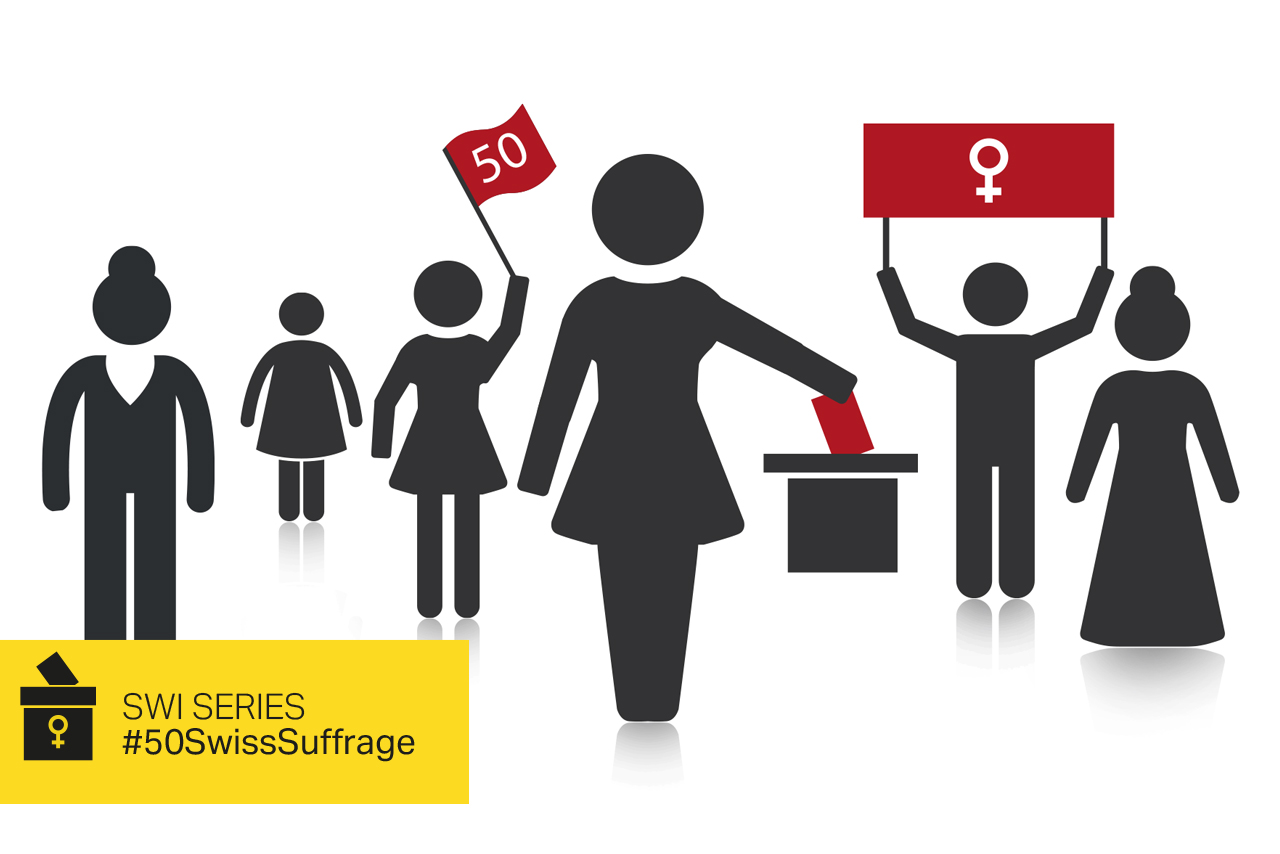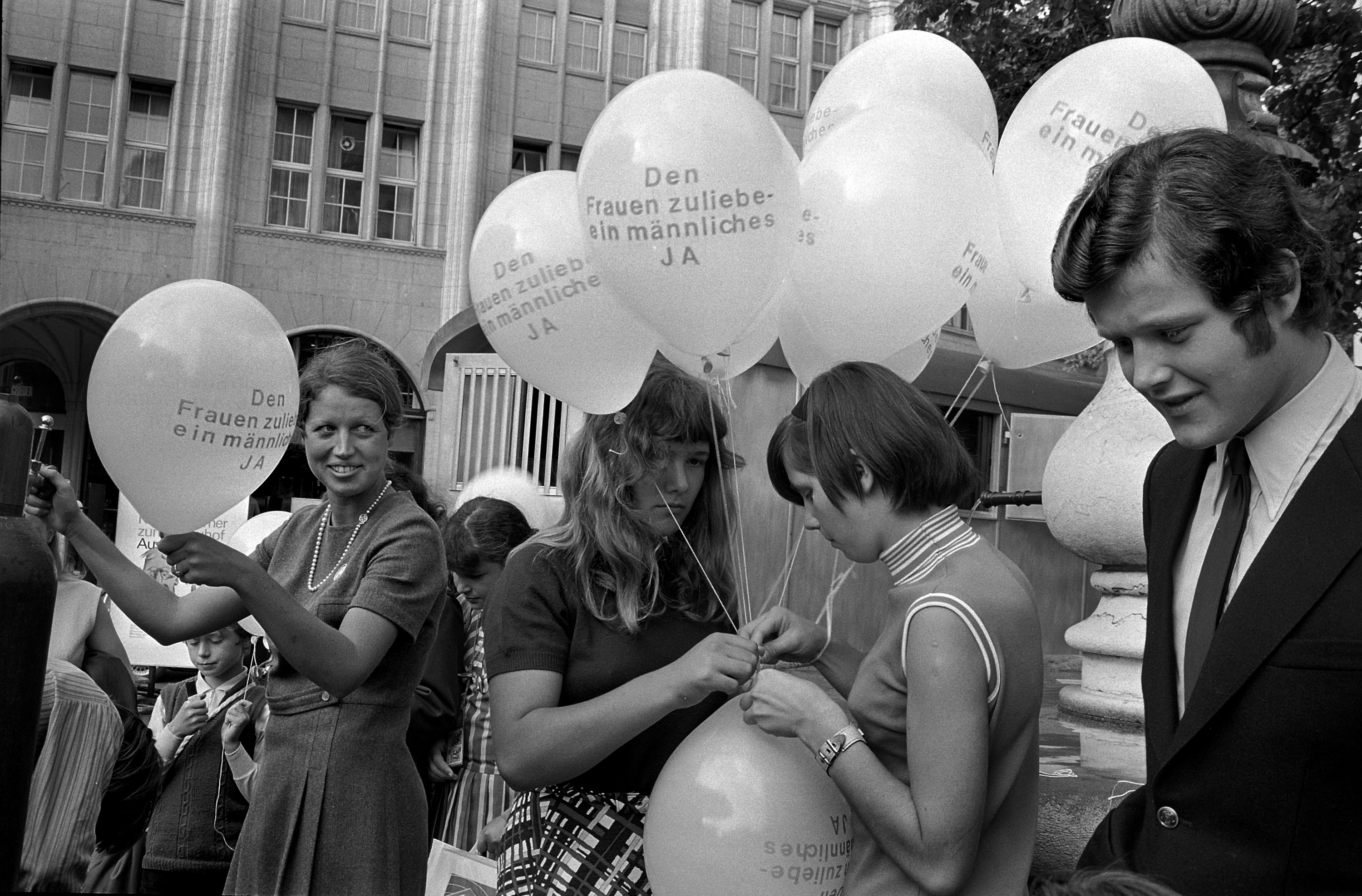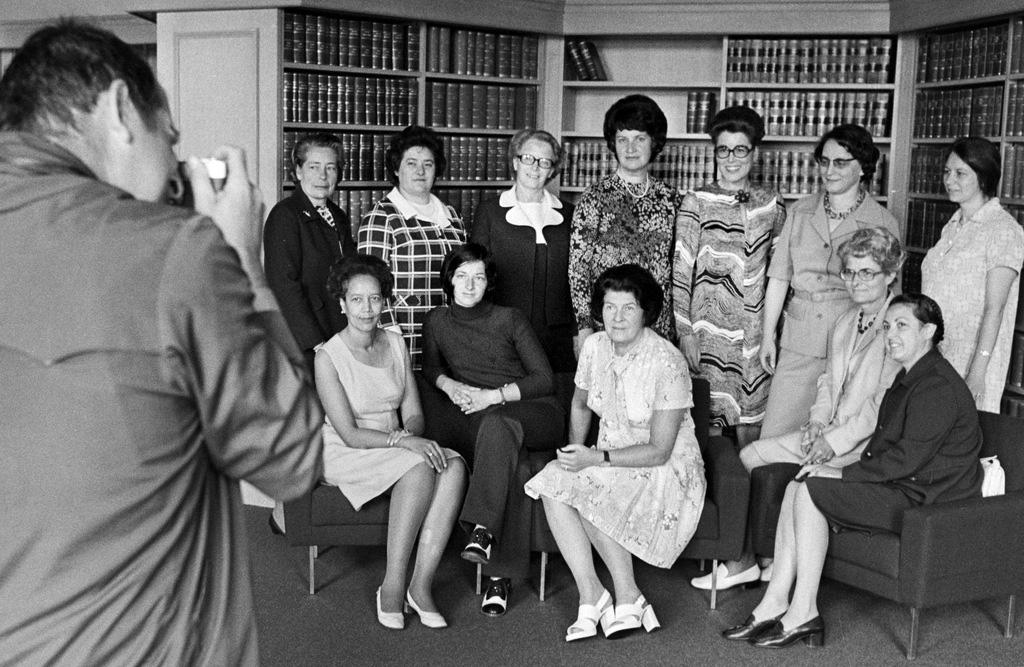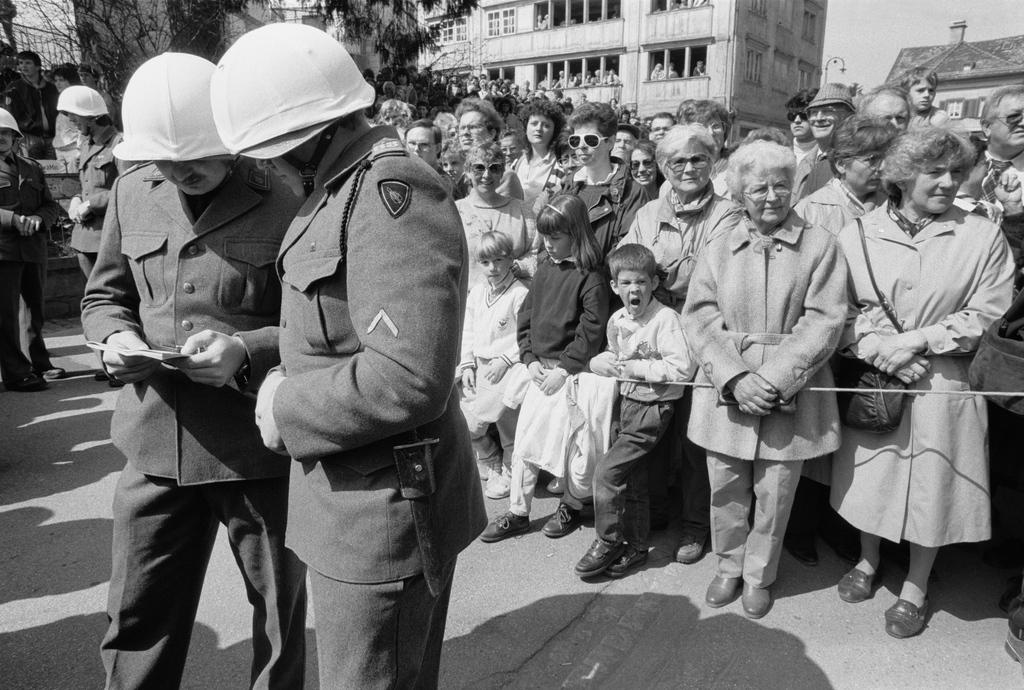Women in Swiss politics: still a long way to go

Fifty years after getting the right to vote, women are better represented in the Swiss parliament than ever. In a ranking of 191 countries worldwide, Switzerland is in 17th place. But this is deceptive: at the local level, representation is still low.
On February 7, 1971, Swiss men decided by referendum to let women have say in Swiss politics. The federal elections on October 31, 1971, were the first in which women could vote as citizens or stand as candidates; 11 women made it into the House of Representatives, giving them a proportion of 5.5%, and one woman took one of the 42 seats in the Senate.
What has happened since? Have Swiss women been able to take their rightful place in national politics over the past 50 years?
More
The ‘women’s’ election
The most recent federal parliamentary elections, held in October 2019, went down in history as the “women’s” election. More women than ever were elected to the two houses of parliament. With a proportion of 41.5% women in the House of Representatives, the country now ranks 17th in a ranking of 191 states worldwide.
Several societal and political factors led to this success, such as the #MeToo movement and protests against the sexism of ex-United States President Donald Trump. In Switzerland, womens’ strikes and mounting climate change activism also led to more women being elected.
“More women were running, and left-wing and green parties, which have a larger number of women on their ticket, won more seats and filled most of those with women,” said Sarah Bütikofer, a political scientist who has participated in research projects on Swiss politics, career advancement of male and female politicians, and gender issues.
Moving forwards after a lull
Prior to the 2019 elections the picture was far from ideal for those advocating equal gender representation in national politics. The trend in the House of Representatives was on the rise, but over the past five years the proportion of women in the Senate and in the government has been in decline.
Women were in the majority for a brief period, it is true, in the seven-member cabinet of ministers that formed the national government in 2010. Doris Leuthard, who was a part of that majority, said afterwards: “With a majority of women in cabinet, we took more courageous decisions than we did before – and after.”
In the Senate, the 2019 election brought an end to a long drought. Reversing the negative trend, the proportion of women reached a new high. But at 26%, it is still fairly modest.
Women in local politics
The country’s federal system means many decisions are taken at a local level; the parliamentary assemblies of cantons and municipalities in Switzerland therefore all have an important role to play.
This is where political careers tend to begin. A person starts by getting on the municipal council, progresses to the parliament of their canton, and then goes on to the national stage.

More
The introduction of women’s suffrage worldwide
“[Globally] at a local level the quota of women is higher. Generally said, it tends to be easier for women to get in that way,” said Corinne Huser, head of gender issues at the Swiss Agency for Development and Cooperation (SDC).
While a higher representation of women at the local level can also be observed in other countries, Switzerland stands out by the career path the women take.
“As a rule, political careers in other countries begin with involvement in parties, not so much in holding office,” said Bütikofer. She does note, however, a slight change in Switzerland over recent years: “More and more political careers now start with some kind of activism, such as environmental and climate-change issues, or with involvement in particular campaigns.”
The 2019 elections have turned the tables; representation of women is now bigger at the national level. This is a trend that can be observed elsewhere, mainly owing to the introduction of quotas in certain countries.
Moderate improvement in the cantons
The cantonal parliaments have a proportion of 30% women on average. Following a period of stagnation from 2007 to 2015, the trend is increasing. Yet in the cantonal governments, progress is less apparent.
The picture is not the same in every canton. While men make up the majority in all cantonal parliaments, the governments in cantons Vaud, Zurich and Thurgau have more women than men. In most cantons, however, men hold the balance of power in government. Six of the cantonal governments – these are mostly five- or six-member cabinets – are actually all-male.
Stagnation in the cities – with a few exceptions
In the cities, the proportion of women is at the same level as in the cantons. One trend stands out: in city governments, women are on average less represented than in municipal parliaments.
In contrast with national and cantonal governments, there is no clear trend towards a higher proportion of women. In the past ten years the trend has stagnated.
There is an exception. In Bern – ever since the last local elections in November – there are twice as many women as men in the municipal assembly.
Although women in other big cities may not hold the majority, it is apparent that more women get elected in the major centres than in smaller towns and cities.
“There is a gulf between left and right in regards to the proportion of women. Since left and green parties are stronger in the major centres and these parties have a high proportion of women, there is a higher proportion of women overall,” said Bütikofer. She reckons that the political parties have a role to play for the proportion of women to improve at the local government level.
Does the 2019 election mean lasting change?
Whether the change brought about in the last nationwide elections will continue remains to be seen.
“I have no way of knowing if the dynamics will continue. In any case, one should not just be complacent after the success of the federal elections of 2019,” Huser said.
“It’s not just a question of ‘as time goes by, the better it gets’. It’s really a matter of being proactive,” she added.

More
How the women’s strike is affecting politics in Switzerland

In compliance with the JTI standards
More: SWI swissinfo.ch certified by the Journalism Trust Initiative















You can find an overview of ongoing debates with our journalists here . Please join us!
If you want to start a conversation about a topic raised in this article or want to report factual errors, email us at english@swissinfo.ch.